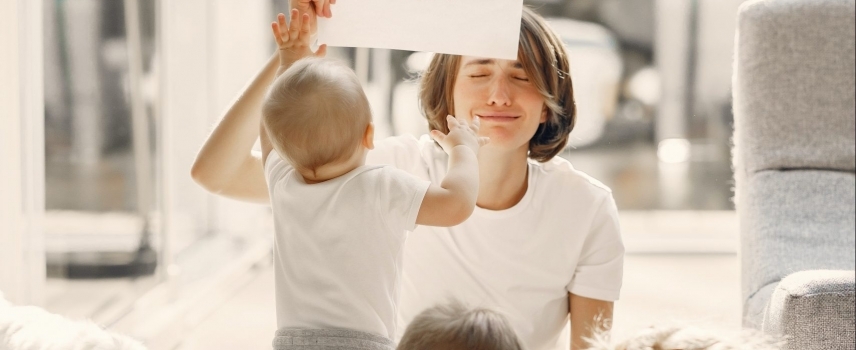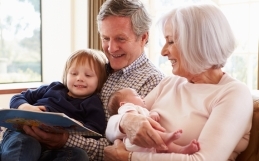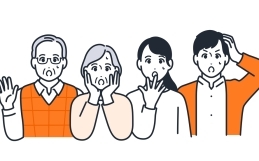As if parenting wasn’t hard enough as it . . . try parenting in a pandemic. It’s a perfect recipe for stress, anxiety, and burnout. For us parents, this pandemic has taken our outlets for stress and robbed us of the ability to just breathe for a moment. Parents know how priceless those little moments of alone time are, even if they’re spent simply taking a shower or catching up on some emails. Having the space to clear our heads and attend to non-kid-related yet important tasks is vital for our mental health. However, with virtual school, temper tantrums, and endless demands for something or other, that space has been taken away from us. Parents everywhere are hearing, “I’m bored” more times than they can count. They’re having to answer work calls and emails while trying to drown out the screams in the background. I’d be surprised if any parent said they aren’t burnt out right now. We juggle a million tasks as it is; now we have to keep the juggling act going with our kids on top of us 24 hours a day.
I want to tell you that if you feel like you’re in survival mode, if you’re just going through the motions, if you’re anxious, numb, and unstimulated, you are most likely burnt out. And that’s okay. It’s actually pretty fitting. The pressure on parents right now is unsustainable. It’s hard. And it certainly puts a damper on life. But acknowledging that doesn’t make you a bad parent or an ungrateful person. It simply makes you human. The first step to overcoming parental burnout during a pandemic is to admit that it’s a lot to handle, acknowledge that you’re anxious, and cut yourself some much-needed slack. Whatever internal pressure you’re putting on yourself to feel better, loosen it up; there’s enough pressure coming at you from the outside right now.
Don’t push yourself to be too positive right now. Try to stick to the facts and the reality of the situation. We’re living through difficult times, when every day brings an onslaught of sadness, stress, and anger. Yes, there are periods of joy and moments of excitement. However, ignoring the hard stuff, asking each other to only talk about the positive, and shunning people when they acknowledge the bad are all signs that you’re avoiding reality.
Our society is not one that tolerates a lot of discomfort; we do many things to avoid it. Think about it: when a child cries, our immediate reaction is to make the discomfort go away. “Don’t cry! You’re okay!” Our society has conditioned us to think that only positive, happy emotions are good.
We tell people to cheer up, buck up, and be happy all the time. We’re so averse to feeling or expressing or hearing about anything less than perfection. But as parenting during a pandemic has proven, we can no longer ignore our feelings.
Ignoring problems has harmful consequences. Insisting on an overly positive view of the world risks causing us to turn our back on the very real—and very harmful—crises that exist all around us. Denying the existence of huge societal problems—or trying to stay positive as a means to ignore problems—only exasperates the existence of the problem. It’s dangerous and unhelpful.
Parenting—and especially motherhood—has been put on a pedestal. And yes, it is amazing in many ways. But there are significant fundamental issues that make motherhood incredibly difficult right now: lack of paid parental leave, lack of universal childcare options, lack of mental health support, and so much more.
Pushing positivity isn’t just something we do to each other; we do it to ourselves, too. When we shame ourselves for feeling negatively, we’re forcing unrealistic standards on ourselves. We have thoughts like, “I shouldn’t be upset that I lost my job,” “I have so much to be thankful for,” “I feel guilty about being stressed during the pandemic,” “I have my health; I should just focus on that,” and it causes us to feel ashamed. Shame is problematic, because it can often prevent us from taking action to get help.
The solution to feeling burnt out isn’t to force yourself to feel better; it’s to welcome the negative, increase your empathy, and embrace your real experience.
Here’s the truth about life: The darkness is just as real as the light. Both are important, valid, and full of lessons—and anyway, ignoring them doesn’t make them go away. If we could learn to tolerate discomfort a little more, learn to sit in the fire, we’d learn things about ourselves we never thought possible. And if, when someone vented to us, we resisted the urge to say, “Think positive” and instead said, “I hear you,” imagine how much more compassionate our world would feel. Instead of either/or thinking, let’s work on starting to think in terms of both/and.
You can be grateful to have your health and stressed during the pandemic.
You can believe that there are good people in the world and that there are people who care only about themselves.
You can love parenthood and be fed up with it.
Both/and thinking. Because that’s what life is. It’s amazing and tragic and boring and breathtakingly hard and beautiful all at the same time.
We can feel lucky to be here and understand our dilemma as human beings.
So, let’s actually be here and acknowledge that we’re strapped into the rollercoaster and burnt out by its twists and turns. Let’s let ourselves be in it. Really in it. Because that’s what’s real. And when we let ourselves face that reality, we can come out of the struggle even better than we were before.
Get a copy of my new book “Anxious for Answers: The surprising truth about anxiety, and how you can master it for good!” https://amzn.to/2N1xKfb
Did you enjoy reading this article?
Once a week I send out a newsletter with new articles and unique content for readers. It is my way of staying in touch with you and giving you free advice based on some important topics.
Click here to sign up for my newsletter.
Talk soon,
Dr. Ilene





